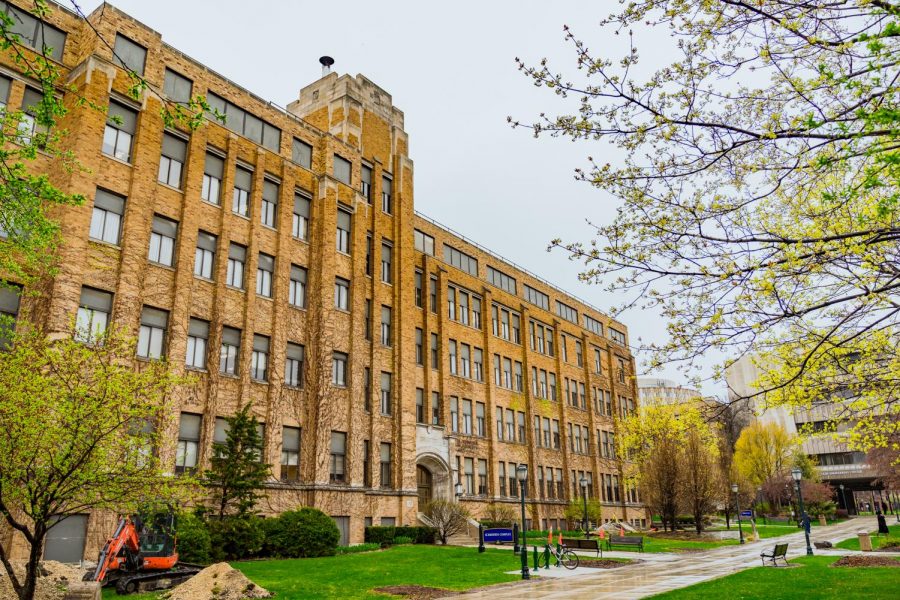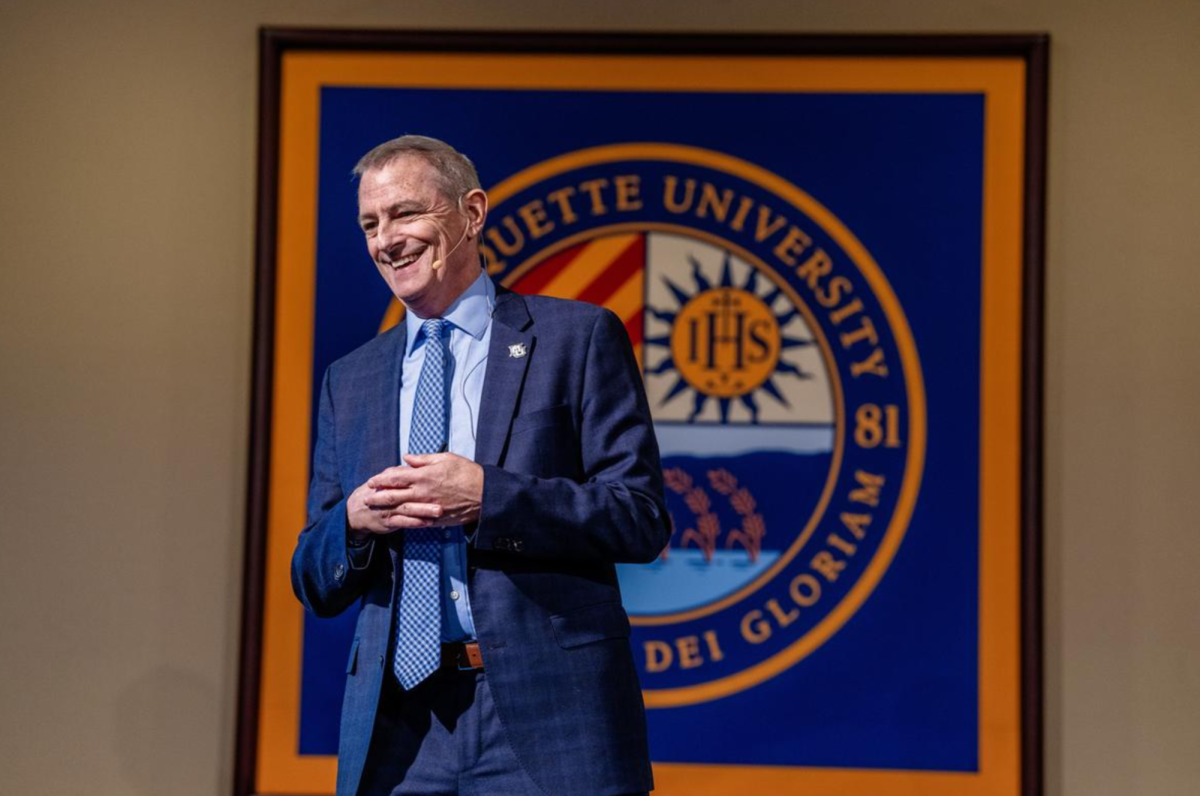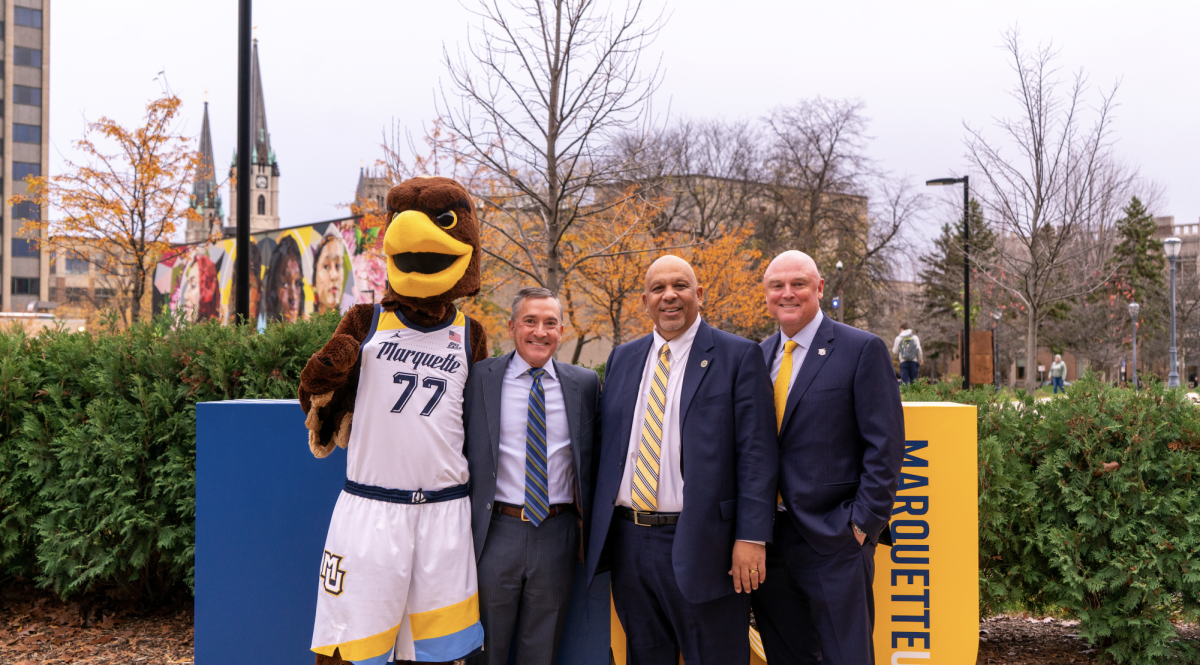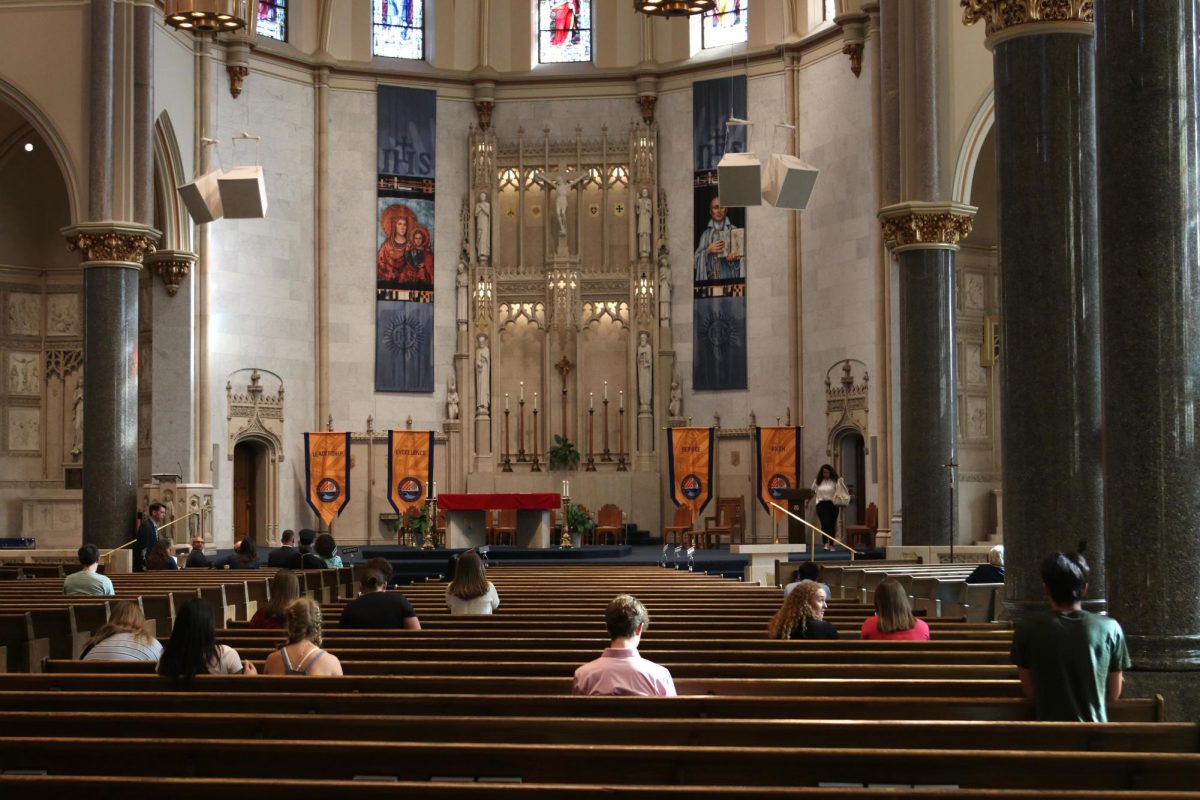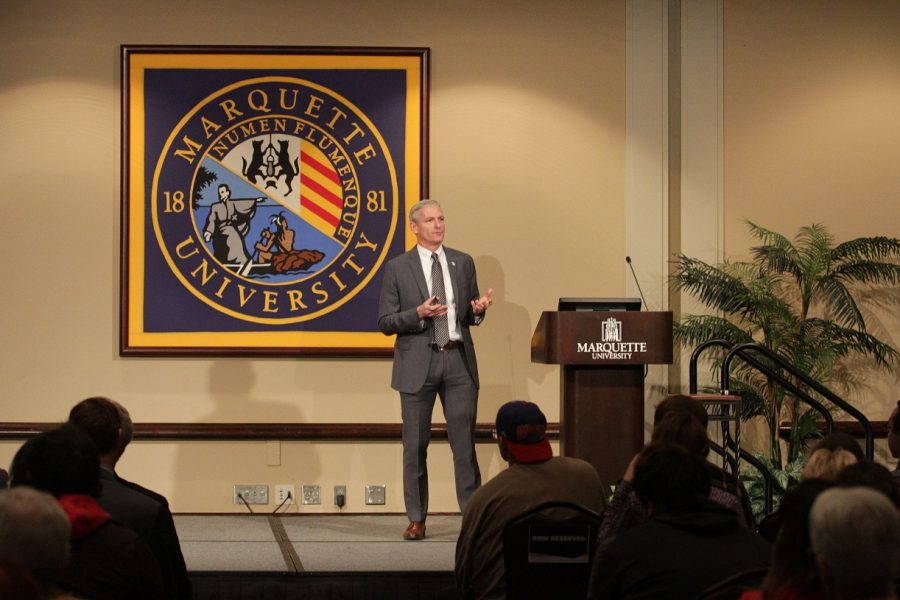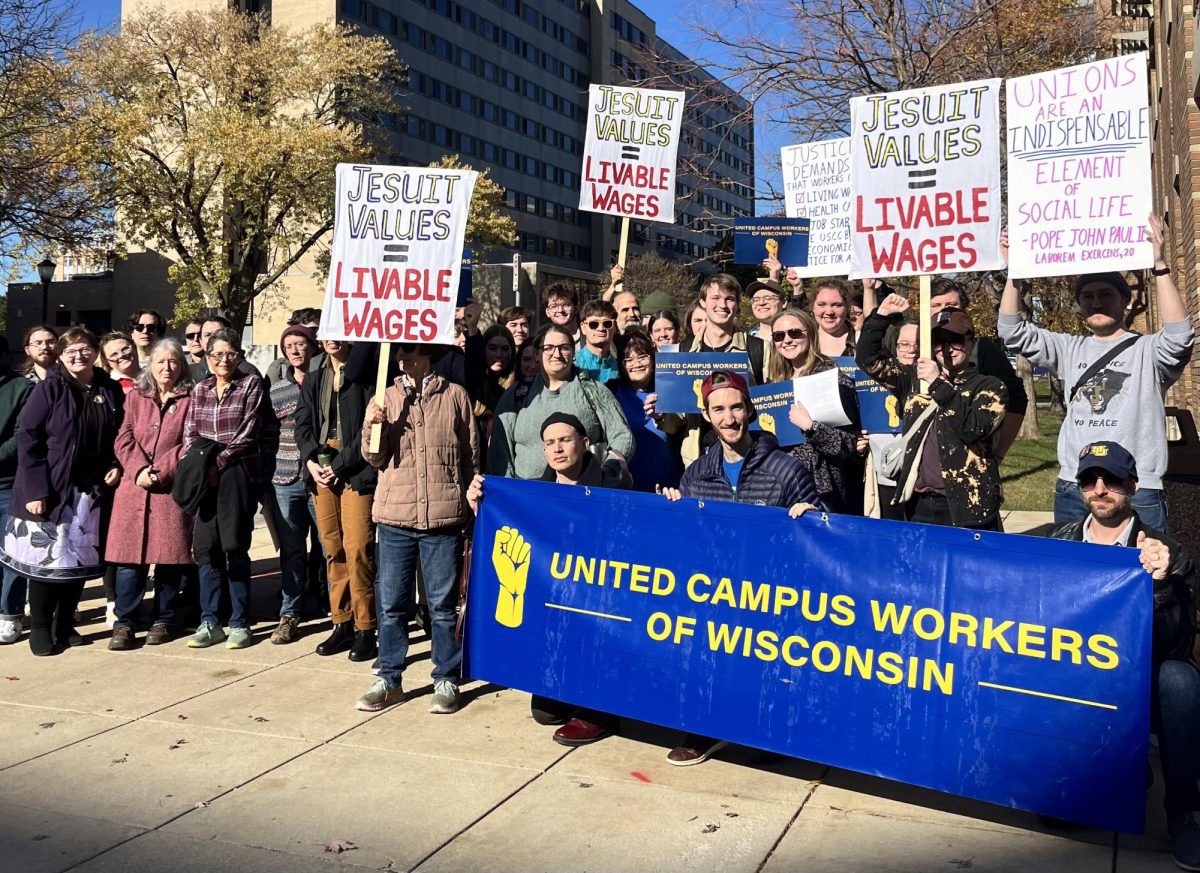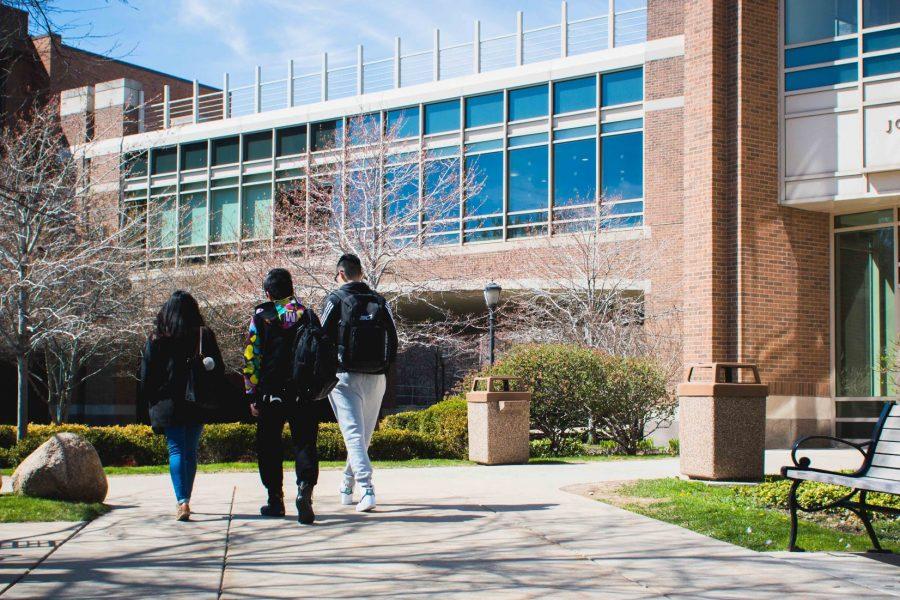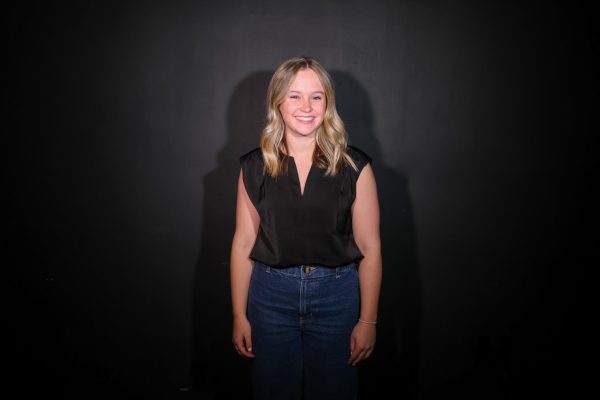A special meeting of University Academic Senate was held Monday to address concerns from faculty about a newfound effort to increase teaching loads and decrease research time for professors.
Professors in each college don’t only teach, they conduct research and participate in service such as advising or serving on committees. The ratio between teaching and research isn’t the same between each college, faculty are concerned that the proposed change would increase the teaching load for everyone.
Kimo Ah Yun, Marquette University acting president and provost, communicated with the deans of each college to discuss this change. There were no documents or formal communication sent to any faculty explaining why the change was happening or how it would be implemented. However, Kevin Conway, university spokesperson, said in a statement that the process has been in the works for over a year.
“There’s a process going on that has huge implications for both the research and teaching missions of the university,” Paul Gasser, chair of Academic Senate said. “I wanted to make sure that information about why that was happening and how that was happening was able to be accessed by the faculty.”
Saving costs
Last March, a plan titled Marquette 2031: Securing Our Future was announced, aiming to reduce Marquette’s spending by $31 million by the year 2031. A steering committee was assembled to communicate with each part of campus to find the best way to approach cutting costs.
Conway said that the Securing Our Future Steering Committee identified teaching efficiency as a way to save costs.
“This is intended to be an iterative process and input from faculty has been invaluable,” Conway said.
Here’s what to know
Gasser said the Senate has received 50 comments by email expressing concerns about the change and the lack of communication from administration. They received emails from the Colleges of Engineering, Business Administration, Health Sciences, Education, Nursing and Arts & Sciences.
Gasser said they’ve also received emails from chairs of departments on behalf of their faculty.
“Many of these concerns may be well founded, many of them may not be well founded,” Gasser said. “We don’t know that because we don’t know the specifics of the process that’s going on.”
Speeches from faculty
Three professors, Leah Flack from the English department, Amy Vaughan Van Hecke from psychology and Brian Schmit from engineering, discussed how the proposed change will impact each of their respective departments. Provost Kimo Ah Yun then answered questions about the change in workloads.
Schmit said research is essential to the university because it draws in prospective students. He also said without time to conduct said research, it will take significantly longer to finish research projects.
“You cannot conduct research in the STEM field without grant support,” Schmit said. “We spend a considerable amount of time writing grant proposals.”
Schmit said to finish a simple grant proposal it takes about two and a half months, which translates to around 450 hours. Given the proposed workload change where they would get seven hours a week to dedicate to research, it would take 62 weeks to complete a proposal.
Van Hecke said for the psychology department, students are involved in the faculty’s research during every step of the process.
“Today’s students want hands on work outside of the lecture classroom,” Van Hecke said. “Decreasing research will limit our ability to do that.”
Flack said she hopes there can be more discussion between Marquette administration and faculty to find common ground.
“I wish we didn’t see the fiscal needs of the university as in opposition to the academic mission,” Flack said. “I think that they are aligned, and I think that they can be aligned.”
Marquette’s response:
Conway said in a statement that the meeting was a good way to hear feedback from faculty.
“This type of dialogue is a valuable part of shared governance. University leaders and our faculty are aligned in Marquette’s mission of serving God by serving our students and contributing to the advancement of knowledge,” Conway said.
Conway said the collaborators are looking at the following ways to reduce costs:
- Offering low-enrollment courses less frequently
- Developing a consistent policy on a minimum enrollment for undergraduate and graduate courses
- Reexamining the appeal and relevance of existing course offerings
- Basing faculty teaching loads and course releases on criteria determined by the dean in consultation with faculty, department chairs and the provost, in accordance with the Faculty Handbook
The Provost’s response:
Ah Yun responded to the concerns by pointing to the cost of tuition as a dollar amount he doesn’t want to increase. Instead, he said there are other ways to reduce costs such as the proposed plan to reevaluate teaching efficiency.
“We want to make sure Marquette is accessible,” Ah Yun said. “We want to make sure students can come here. It’s one of the many things I look at and ask, ‘How are we ensuring that we’re keeping a price point that’s appropriate for a student?'”
The Marquette Board of Trustees has increased tuition by 9% in the last two academic years. In the past decade, tuition has increased every year aside from the 2021-22 school year.
Ah Yun said when looking at individual schools’ teaching loads, it might not be the same across all colleges; they may vary depending on types of research and varying timelines.
“We know we have an important strategic plan,” Ah Yun said. “We know we have to invest in the strategic plan. We’re not going to do that on the backs of students, so what will we do differently as a university?”
This story was written by Sophia Tiedge. She can be reached at sophia.tiedge@marquette.edu.


